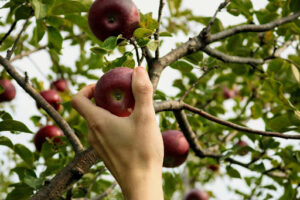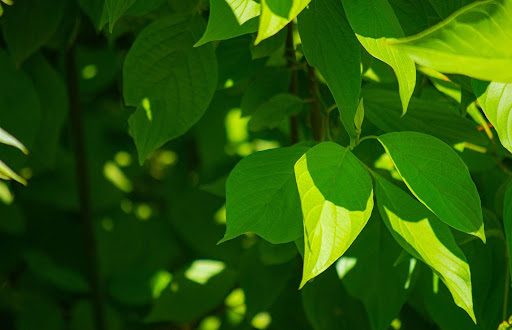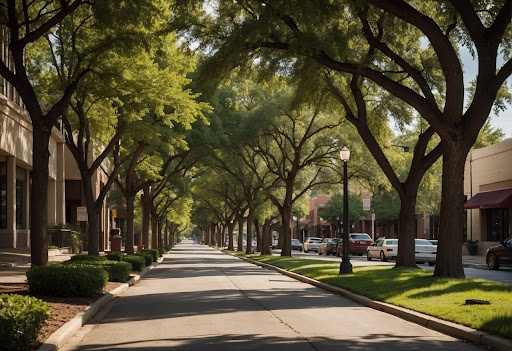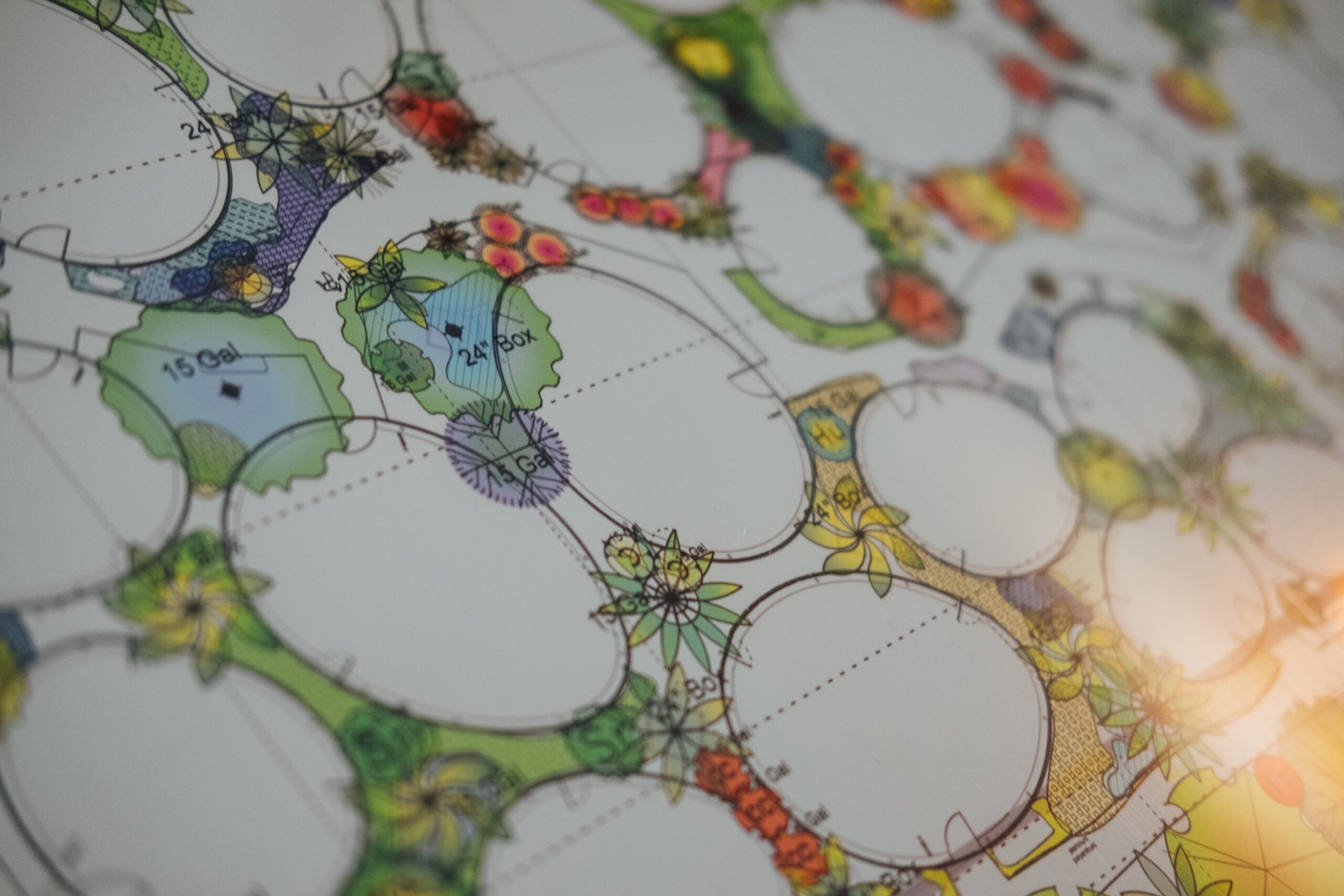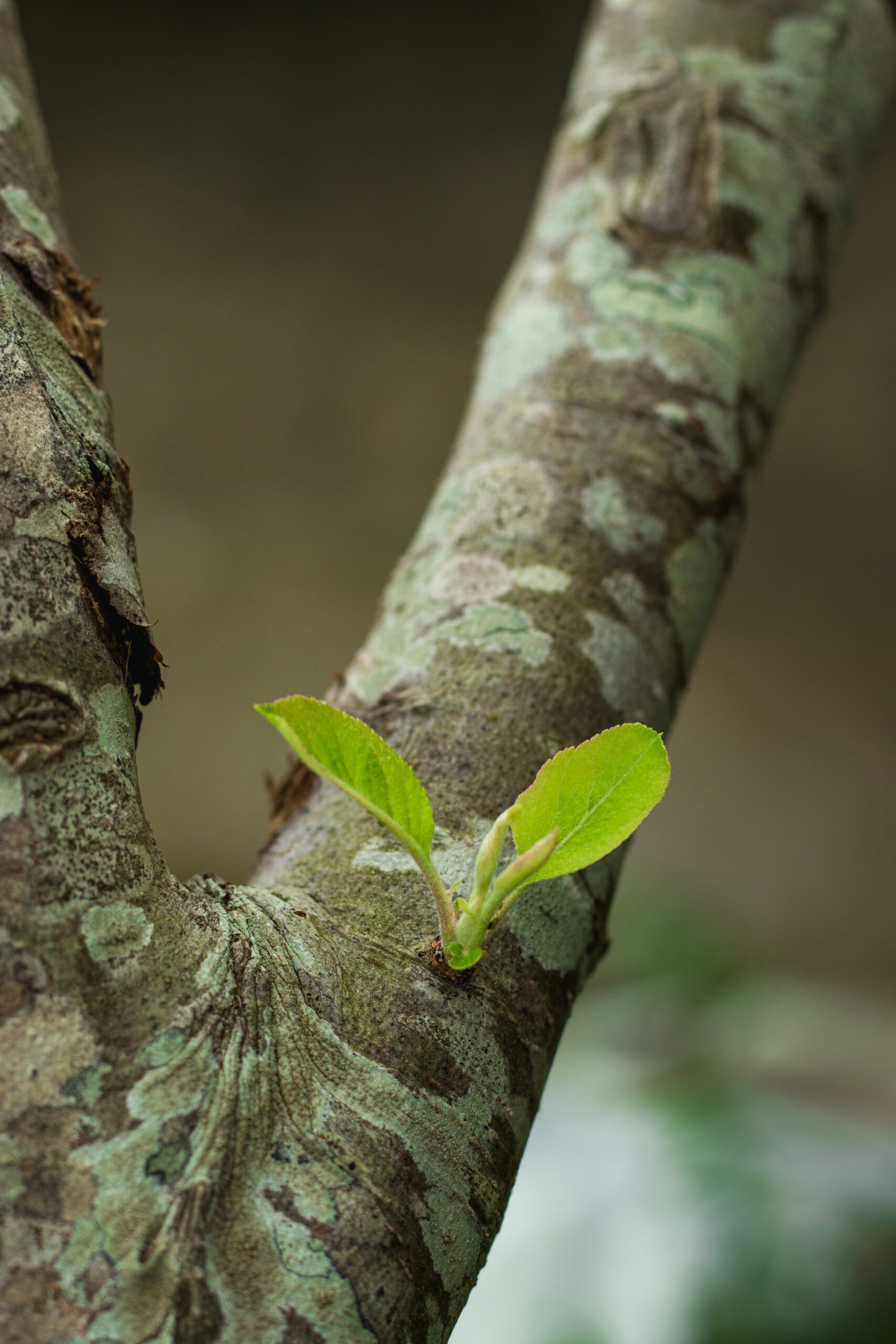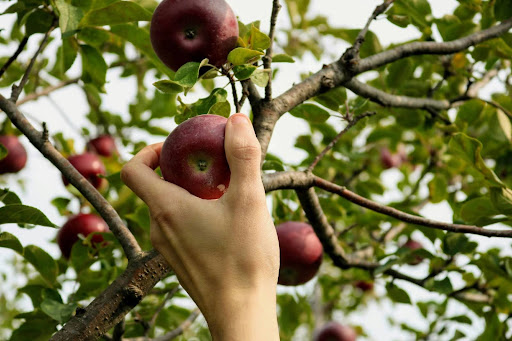
Fruit Tree Care Argyle: A Guide to Maintenance
Date December 27, 2023
Fruit trees are a common sight in Argyle, and their care and maintenance are essential to ensure a bountiful harvest. Proper care can help fruit trees live longer, produce more fruit, and resist diseases and pests. However, with so many different sources of information available, it can be challenging to know what advice to follow.
When it comes to caring for fruit trees in Argyle, it’s essential to find reliable information from trusted sources. TreeNewal has experience and knowledge that is invaluable to Argyle’s residents. TreeNewal can guide Argyle’s residents so that no new pests and diseases find their way to their fruit trees, leading to poor health and reduced yields.
To help homeowners care for their fruit trees in Argyle, this guide will offer insights into the best practices for fruit tree care and maintenance. By following these tips, homeowners can ensure that their fruit trees remain healthy, productive, and free from pests and diseases.
Understanding the Local Climate and Soil Conditions
Fruit trees require specific climate and soil conditions to thrive. In Argyle, the climate is generally warm and humid, with average temperatures ranging from 60 to 80 degrees Fahrenheit. The soil in Argyle is typically clay or sandy loam, which can be challenging for fruit trees to grow in.
To ensure the best growth and health of your fruit trees, it’s important to understand the local climate and soil conditions. Here are some key factors to consider:
- Sunlight: Fruit trees require at least six hours of direct sunlight per day to produce fruit. Make sure to plant your trees in a location that receives ample sunlight.
- Water: Fruit trees need consistent water to thrive, especially during the growing season. Make sure to water your trees regularly, but avoid over-watering, as this can lead to root rot.
- Soil pH: Fruit trees prefer a slightly acidic soil with a pH between 6.0 and 6.5. If your soil is too alkaline, you can add sulfur to lower the pH.
- Fertilizer: Fruit trees require regular fertilization to provide the nutrients they need to grow and produce fruit. Use a balanced fertilizer with a ratio of 10-10-10, or a fertilizer specifically formulated for fruit trees.
By understanding the local climate and soil conditions, you can ensure that your fruit trees have the best chance of thriving in Argyle.
Selecting the Right Fruit Trees for Argyle
When selecting fruit trees for your Argyle garden, it is important to consider several factors to ensure the success of your harvest. Here are some tips to help you choose the right fruit trees for your garden:
- Climate: Argyle has a humid subtropical climate, which means that it is hot and humid in the summer and mild in the winter. Fruit trees that thrive in this climate include peaches, plums, figs, and citrus trees.
- Soil: The soil in Argyle is generally clayey and alkaline. Fruit trees that do well in this type of soil include peaches, plums, and figs.
- Sunlight: Fruit trees require at least 6 hours of sunlight per day to produce fruit. Make sure to choose a location in your garden that gets plenty of sunlight.
- Spacing: Fruit trees require adequate spacing to grow and produce fruit. Make sure to plant your fruit trees at least 10 feet apart.
By considering these factors, you can ensure that you select the right fruit trees for your Argyle garden and enjoy a bountiful harvest.
Planting Techniques for Healthy Growth
When it comes to planting fruit trees, the right techniques can make all the difference in ensuring healthy growth. Here are some tips to keep in mind:
- Choose the right location: Pick a spot with plenty of sunlight and good drainage. Avoid areas that are prone to flooding or standing water.
- Prepare the soil: Before planting, make sure the soil is well-drained and nutrient-rich. Consider adding compost or other organic matter to improve soil quality.
- Plant at the right depth: Make sure the tree is planted at the same depth as it was in the nursery. Planting too deep or too shallow can lead to problems later on.
- Water regularly: Newly planted trees need plenty of water to establish roots. Water deeply once or twice a week, depending on weather conditions.
- Mulch: Adding a layer of mulch around the base of the tree can help retain moisture and suppress weeds.
By following these planting techniques, fruit trees in Argyle can thrive and produce healthy, delicious fruit for years to come.
Watering Strategies for Fruit Trees
Fruit trees require consistent and adequate watering to thrive. Proper watering strategies can help to prevent diseases and pests, improve fruit quality, and increase overall tree health. Here are some effective watering strategies for fruit trees in Argyle:
- Water deeply and infrequently: Fruit trees prefer deep watering sessions rather than frequent shallow watering. This encourages the roots to grow deeper into the soil, which helps to improve the tree’s stability and access to nutrients. Aim to water the tree once a week, or when the top 2-3 inches of soil are dry.
- Use a drip irrigation system: Drip irrigation systems are a great way to provide consistent and efficient watering to fruit trees. They deliver water directly to the tree’s roots, minimizing water loss due to evaporation or runoff. This method also reduces the risk of water-related diseases, as the foliage and fruit remain dry.
- Mulch around the base of the tree: Mulching around the base of the tree can help to retain moisture in the soil and prevent weeds from growing. This helps to reduce competition for water and nutrients, and also protects the tree’s roots from extreme temperatures.
- Avoid overhead watering: Overhead watering, such as with a sprinkler system, can increase the risk of fungal diseases and pests. If overhead watering is necessary, try to do it early in the day so the foliage has time to dry before nightfall.
By following these watering strategies, fruit tree owners in Argyle can help to ensure their trees remain healthy and productive for years to come.
Nutrition and Fertilization Essentials
When it comes to fruit tree care in Argyle, proper nutrition and fertilization are essential for healthy growth and bountiful harvests. Here are some key points to keep in mind:
- Timing is everything: Fertilize your fruit trees at the right time to ensure they get the nutrients they need when they need them. For most fruit trees, fertilization should occur in early spring before new growth appears.
- Choose the right fertilizer: Look for a balanced fertilizer that contains equal parts nitrogen, phosphorus, and potassium (NPK). You can also use organic fertilizers such as compost or manure.
- Apply fertilizer correctly: Follow the instructions on the fertilizer package carefully. Over-fertilizing can lead to excess growth and weak branches, while under-fertilizing can result in poor fruit production.
- Mulch your trees: Applying a layer of mulch around the base of your fruit trees can help retain moisture, suppress weeds, and provide nutrients as it breaks down over time.
- Monitor for deficiencies: Keep an eye out for signs of nutrient deficiencies such as yellowing leaves or stunted growth. Address any issues promptly to prevent further damage to your trees.
By following these basic guidelines for nutrition and fertilization, you can help ensure your fruit trees in Argyle stay healthy and productive for years to come.
Pruning and Shaping for Optimal Health
Pruning and shaping fruit trees are essential practices for maintaining their health and productivity. Here are some tips for pruning and shaping fruit trees in Argyle:
- Timing: Prune fruit trees in late winter or early spring before the buds break. This timing allows the tree to heal before the growing season begins.
- Tools: Use sharp and clean tools to avoid damaging the tree. Pruning shears, loppers, and a pruning saw are recommended.
- Techniques: Remove dead, diseased, or damaged wood first. Then, remove any crossing branches and water sprouts. Finally, thin out the canopy to allow light and air to reach the fruit.
- Shaping: Train young fruit trees to have a central leader and well-spaced scaffold branches. This shape allows for even fruit distribution and easy maintenance.
- Maintenance: After pruning, sanitize your tools with rubbing alcohol or bleach to prevent the spread of diseases.
By following these best practices for pruning and shaping fruit trees, homeowners in Argyle can ensure their trees’ optimal health and productivity.
Pest and Disease Management
Fruit trees are prone to various pests and diseases that can affect their growth and yield. It is important to identify and manage these problems early to prevent further damage. Here are some effective pest and disease management practices for fruit trees in Argyle:
- Regular Inspections: Regularly inspecting fruit trees for signs of pests and diseases is essential. This helps catch any issues early, before they cause significant damage. Look for signs of damage such as holes in leaves, wilting, or discoloration.
- Pruning: Pruning is an effective way to manage pests and diseases. Removing dead or diseased branches can prevent the spread of diseases and pests. Pruning also helps increase air circulation and sunlight penetration in the tree canopy, which can reduce the risk of fungal diseases.
- Sanitation: Good sanitation practices can help prevent the spread of diseases. Remove fallen leaves and fruit from the ground and dispose of them properly. This can help prevent the spread of fungal spores and pests.
- Natural Predators: Encouraging natural predators such as ladybugs and lacewings can help control pests. These insects feed on pests such as aphids and mites, reducing their populations.
- Organic Pesticides: If pest populations are too high, organic pesticides can be used. These pesticides are made from natural ingredients and are less harmful to the environment. Always follow the instructions carefully when using any pesticide.
By following these pest and disease management practices, fruit trees in Argyle can be kept healthy and productive.
Seasonal Care Through the Year
Fruit trees require different care and maintenance depending on the season. Here are some tips on how to care for your fruit trees in Argyle throughout the year:
- Winter – During the winter months, fruit trees are dormant, which means they do not produce fruit and their growth slows down. Winter is the best time to prune fruit trees. Pruning helps to remove dead, diseased, or damaged wood, which can help prevent pests and diseases from spreading. It also helps to shape the tree and encourage new growth in the spring. It is important to prune fruit trees correctly, so it is recommended to hire a professional tree care company like TreeNewal for this task.
- Spring – In the spring, fruit trees start to come out of dormancy and begin to produce new growth. This is the time to fertilize your fruit trees. Fertilizer provides the nutrients that fruit trees need to grow healthy and strong. It is important to use the right type of fertilizer for your fruit trees and to follow the manufacturer’s instructions carefully. TreeNewal can help you choose the right fertilizer for your fruit trees.
- Summer – During the summer months, fruit trees need plenty of water to produce fruit. It is important to water your fruit trees deeply and regularly, especially during periods of drought. Mulching around the base of the tree can help to retain moisture in the soil and reduce weed growth. It is also important to monitor your fruit trees for pests and diseases and to take action if needed. TreeNewal can help you identify and treat any pests or diseases that may be affecting your fruit trees.
- Fall – In the fall, fruit trees begin to prepare for dormancy again. This is the time to harvest your fruit and to continue to monitor your trees for pests and diseases. It is also a good time to apply a dormant oil spray to your fruit trees. Dormant oil spray helps to control pests and diseases that may overwinter on the tree. TreeNewal can help you choose and apply the right dormant oil spray for your fruit trees.
By following these seasonal care tips, you can help to ensure that your fruit trees in Argyle remain healthy and productive for years to come.
Harvesting and Post-Harvest Care
After patiently waiting for the fruits to ripen, it’s time to harvest them. Here are some tips for proper harvesting and post-harvest care:
- Timing: Harvest fruits when they are fully ripe. Each fruit type has a unique ripening time. For example, apples are ready to harvest in late summer or early fall, while peaches are ready in mid-summer. Check the fruit regularly and harvest them as soon as they are ripe.
- Tools: Use the right tools for harvesting. For instance, use a ladder to reach high branches, and use pruning shears or a sharp knife to cut the fruits off the tree. Avoid pulling or twisting the fruits as it can damage the tree.
- Storage: Store the harvested fruits in a cool, dry place. Apples and pears can be stored in the refrigerator for a few weeks, while peaches and plums should be consumed or preserved within a few days.
- Preservation: There are many ways to preserve fruits, such as canning, freezing, or drying. Choose a preservation method that suits the fruit type and your preference.
By following these tips, you can ensure that your harvested fruits are of the best quality and flavor.
Long-Term Tree Health and Maintenance
When it comes to fruit tree care in Argyle, maintaining the long-term health of the tree is essential. Here are some tips to ensure your fruit trees stay healthy for years to come:
- Pruning: Regular pruning is necessary to maintain the shape of the tree and to remove any dead or diseased branches. It’s best to prune during the dormant season to avoid damaging the tree.
- Fertilization: Fertilizing your fruit trees is important to ensure they receive the necessary nutrients for healthy growth. Use a balanced fertilizer in the spring and again in the fall.
- Watering: Proper watering is crucial for fruit tree health. Water deeply and infrequently, rather than shallowly and frequently. It’s best to water in the morning to allow time for the leaves to dry before nightfall.
- Pest Control: Keeping pests under control is essential for maintaining fruit tree health. Monitor your trees regularly for signs of pest infestation and use appropriate control methods, such as insecticidal soap or horticultural oil.
Ready to Act?
Your engagement with TreeNewal for fruit tree care is not just a step towards the betterment of your own garden; it’s a contribution to the thriving green landscape of Argyle. Visit TreeNewal’s website or contact them directly to explore how you can be a part of this fruitful journey.
Together, with the expertise of TreeNewal and your passion for gardening, we can ensure that the fruit trees of Argyle continue to flourish, adding beauty and bounty to our community.
